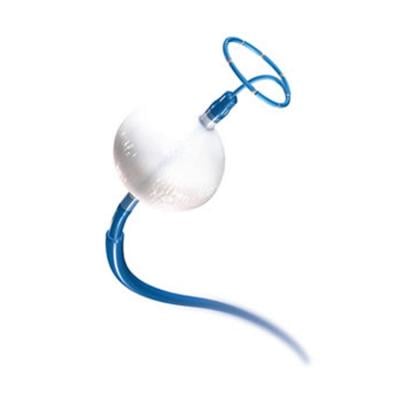
August 28, 2018 — Medtronic plc announced new findings from the CRYO4PERSISTENT AF clinical trial demonstrating improved quality of life, reduced symptoms from abnormal heart rhythms, and low incidence of reinterventions and repeat ablation procedures. The study evaluated patients with symptomatic persistent atrial fibrillation (AF) treated with the Medtronic Arctic Front Advance Cryoballoon, and the results were presented at the 2018 European Society of Cardiology (ESC) Congress, Aug. 25-28 in Munich.
Patients treated with cryoballoon ablation experienced clinically meaningful changes in quality of life scores, with a 7.1 point average improvement in physical quality. and a 3.3 point average improvement in mental health quality component scores. These scores were determined using the SF-36 Short Form Health Survey, which is a validated tool routinely used in clinical research to assess health outcomes in clinical studies.
Patients also experienced a significant reduction in symptoms: While 92 percent of patients had symptoms such as dizziness, palpitations and fatigue prior to cryoablation, only 16 percent of patients had arrhythmia-related symptoms a year after treatment (P < 0.0001). The severity of symptoms also decreased after cryoballoon treatment, from 2.1 to 1.3 (p<0.01) using the European Heart Rhythm Association AF Symptom Score. New York Heart Association (NYHA) class improved by one or more functional class in 47 percent of patients (from baseline to 12 months).
"These findings highlight the advantage of cryoballoon ablation in patients with persistent AF, demonstrating that patients have fewer symptoms after treatment and a significant improvement in their quality of life," said K.R. Julian Chun, M.D., Cardioangiological Center Bethanien, Agaplesion Markus Hospital, Frankfurt, Germany, and co-investigator of the study. "Paired with the study data showing a low incidence of reinterventions, it's clear to see the benefit for both patients and healthcare providers."
Although patients entering this study already had progressed to an advanced AF disease stage, which traditionally has been more difficult to treat1, the study found that only 17 of the 101 patients in the trial required a repeat ablation at the time of an arrhythmia recurrence. In addition, direct current cardioversion — a procedure to reset an abnormal heart rhythm back to normal — was only required for eight patients at the time of recurrence. Further, only three patients in sinus rhythm remained on antiarrhythmic medication at the completion of the study.
The primary CRYO4PERSISTENT AF study results, presented earlier this year and published this week in the Journal of the American College of Cardiology: Clinical Electrophysiology1, demonstrated that 60.7 percent of patients were free from all atrial arrhythmias (adjudicated AF, atrial flutter or atrial tachyarrhythmias), at one year following a single PVI-only cryoballoon ablation procedure. The study findings also demonstrated short and predictable procedure times of 53 ± 22 minutes with the cryoballoon and a low complication rate of 4 percent.
CRYO4PERSISTENT AF is a prospective, single-arm, interventional, multicenter, non-randomized clinical trial that evaluated 12-month clinical outcomes of cryoballoon ablation for isolating the pulmonary veins, without additional ablation in the left atrium, using the Medtronic Arctic Front Advance Cryoballoon System to treat patients with persistent AF. Eligible patients were defined as having documented symptomatic persistent AF at baseline lasting longer than 7 days and up to 180 days. Prior to the procedure, enrolled patients were monitored to ensure they met the 100 percent persistent AF documentation criteria. Per protocol, a total of 101 patients were analyzed and followed for 12 months at 11 medical centers throughout Europe.
Cryoballoon ablation is used in a minimally invasive procedure to isolate the pulmonary veins, which are a source of erratic electrical signals that cause AF. The device uses cold energy rather than heat (radiofrequency, or RF, ablation) to create scar tissue and interrupt irregular electrical pathways in the heart. The Arctic Front Advance Cryoablation System is approved in Europe for the treatment of AF. In the U.S., the Arctic Front Advance Cryoablation System is approved for the treatment of drug refractory, recurrent, symptomatic paroxysmal AF. It is not approved for treating persistent AF in the United States.
The 2016 ESC guidelines and the 2017 Heart Rhythm Society (HRS) Consensus Statement for the management of AF both acknowledge cryoablation therapy as a reasonable ablation energy for treating AF and recognize PVI as an effective and preferred treatment option for select patients with AF.
For more information: www.medtronic.com
Reference
1. Boveda S., Metzner A., Nguyen D.Q., et al. Single-Procedure Outcomes and Quality-of-Life Improvement 12 Months Post-Cryoballoon Ablation in Persistent Atrial Fibrillation: Results From the Multicenter CRYO4PERSISTENT AF Trial. JACC: Clinical Electrophysiology, Aug. 25, 2018. https://doi.org/10.1016/j.jacep.2018.07.007


 January 22, 2026
January 22, 2026 









